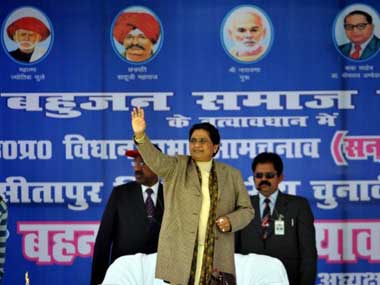Let’s face it. Politics built around religion is worse than caste politics. The former is fundamentally destructive, while the later, though ideally avoidable, has something inherently constructive about it. That makes the Allahabad High Court order calling for an immediate end to caste-based rallies hard to digest. Of course, the ban on such rallies won’t stop caste politics, neither will it stop parties from putting up caste candidates. But the bigger point is, should the courts take an elitist position on such issues? The problem begins with oversimplified perception of the caste structure in our society and the electoral behaviour of members of castes. Castes are not monolithic, homogeneous entities as many poll experts would suggest. Such assumption ignores the nuances of intra-caste hierarchy, the arrangement of power within castes and the distributive potential of politics in caste societies. If caste were rock solid formations standing in support of particular parties all the time, why is it that governments keep changing in states like Uttar Pradesh every five years? Experts talk about caste arithmetic too much, but they fail to grasp that the dynamics of politics have made the support of castes to parties a fluid proposition. The Mandalisation of the UP politics in early 1990s, saw the marginalisation of national parties such as the Congress and the BJP in the state. The Samajwadi Party and the Bahujan Samaj Party have been busy working out several caste formulations over the last decade, but an infallible success formula has been eluding them. How is that? Even the Yadav vote base of the SP and the Yatav vote bank of the BSP have not proved absolutely dependable. [caption id=“attachment_960859” align=“alignleft” width=“380”] Mayawati in this file photo. AFP[/caption] So how does politics help castes? Well, by mobilising people at the bottom of the intra-caste hierarchy and putting them up in the power structure of the society, on a par with those who have been up their traditionally, usurping all the benefits provided by the government. Politics is competitive business. Parties need to discover new support groups all the time to spread their base and win elections. It’s always a quid -pro-quo arrangement. The caste groups are promised a pie in the benefits pie, whichever way, and they vote for the party in return. If they are ditched, they shift allegiance. Politics forms them into a vote bank and provides them the knowledge of collective bargaining. It’s a positive trend in the democracy. It’s believed Mayawati lost the assembly elections because the lower rungs of the Yatavs deserted her for the SP. Parties are now focussing more on the Pasmanda Muslims — those very low in the caste hierarchy of the Muslim community — across the country. They are yet to solidify as a vote bank, but the process in that direction is already on. The sense of collective self-interest in these communities stemming from the knowledge of their power in electoral politics can only be a good sign for the democracy. [embedalsosee] The Dalits are much better off in terms of social dignity after the emergence of the BSP as a political force. If the Brahmins want to ally with the Dalit party, it is a sign that the notion of caste exclusivity is giving way to pragmatic considerations. It’s only natural that they would seek to drive a sound bargain based on self-interest. Politics creates scope for compromises and mutual give and take. It’s a trend that should be encouraged rather than be discouraged. Yes, the obsessive focus on castes by parties is not desirable. But the fact remains that the Indian voters make intelligent cost-benefit analyses before making their voting decision. They know how to punish leaders too. They are not fools as the elitist understanding would have it. Mayawati’s demand that courts should think of banning religion-based organisations like the Vishwa Hindu Parishad and the Bajrang Dal for dividing the country on communal lines, appears justified. Religion is a highly divisive force and it does nothing but promote hatred between communities. If it appears ironical that the country is still caught in the debate over secularism six decades after independence, it’s because we have groups promoting agenda based on religious identity. This also applies to several Muslim organisations trying to block the mainstreaming of the community with the ideology of hate and distrust. The courts must not get carried away by elitist view points and be more objective in their approach to issues such as caste.
Religious politics is fundamentally destructive, while caste politics could be constructive.
Advertisement
End of Article


)
)
)
)
)
)
)
)
)



